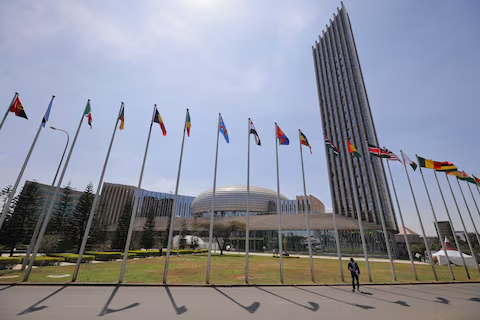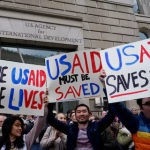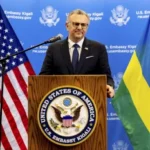In an era marked by a surge in populist movements worldwide, the conversations surrounding reparations for historical injustices have become increasingly vital. Recently, an official from the African Union (AU) emphasized that rising populism should not deter discussions on reparations, arguing that they are essential for justice and reconciliation.
Understanding Reparations in Context
Reparations refer to the measures taken to compensate for injustices experienced by groups or communities historically marginalized or oppressed. This often includes financial compensation, land restitution, and investment in communities. The call for reparations has grown louder in recent years, especially in the context of the transatlantic slave trade, colonialism, and systemic racism.
Historically, reparations have been a contentious issue, often polarized by political rhetoric and populist narratives. Critics argue that reparations could exacerbate divisions, while supporters view them as necessary for addressing past wrongs and promoting social equity.
The Rise of Populism: A Double-Edged Sword
Populism has gained traction globally, driven by dissatisfaction with existing political systems and economic disparities. While populist leaders often tap into the grievances of the disenfranchised, they may also exploit divisive narratives that undermine collective movements for justice, including reparations.
The AU official highlighted that instead of undermining the reparations discourse, populism should invigorate it. The rise of populist sentiment often stems from legitimate grievances related to inequality, disenfranchisement, and historical injustices — issues that reparations directly address. Ignoring the call for reparations can further alienate already marginalized communities and perpetuate cycles of inequality.
The Case for Reparations: A Global Perspective
Several countries and institutions are already recognizing the importance of reparations. For instance, in 2021, the U.S. Congress held hearings on reparations for African Americans, a significant step in addressing the legacy of slavery. Similarly, the UK’s Labour Party has proposed a reparations policy aimed at acknowledging the country’s colonial past. These discussions indicate a growing recognition of the need for reparative justice.
In Africa, nations like Namibia and South Africa have begun addressing the implications of colonialism through reparative measures. Namibia, in particular, has been vocal about negotiating reparations from Germany for the genocide of the Herero and Nama people. Such moves not only acknowledge historical injustices but lay the groundwork for healing and reconciliation.
Fostering Dialogue Amidst Populist Waves
The AU official argues that it is essential to continue fostering conversations around reparations despite rising populism. These discussions must be inclusive, engaging various stakeholders, including marginalized communities, policymakers, and scholars. By promoting a narrative centered on justice and equality, advocates can counteract populism’s tendency to dismiss or distort the reparations discourse.
Education plays a crucial role in this effort. Raising awareness about the historical context of injustices and the rationale behind reparations can foster empathy and understanding among broader populations. An informed public is less susceptible to divisive populist rhetoric that seeks to diminish the reparative justice movement.
Conclusion: Justice Beyond Populism
In conclusion, while rising populism poses challenges, it should not deter the vital discussions surrounding reparations. The African Union official’s insights remind us that reparative justice is not simply a political issue; it is a moral imperative that seeks to rectify historical wrongs and create a more equitable future.
As conversations about reparations continue to grow, it is crucial to remain steadfast in advocating for justice. Only by addressing these past injustices can societies hope to build a more just and cohesive future, one that acknowledges and learns from its history rather than shying away from it.
Email Us on editorial@nnafrica.com













